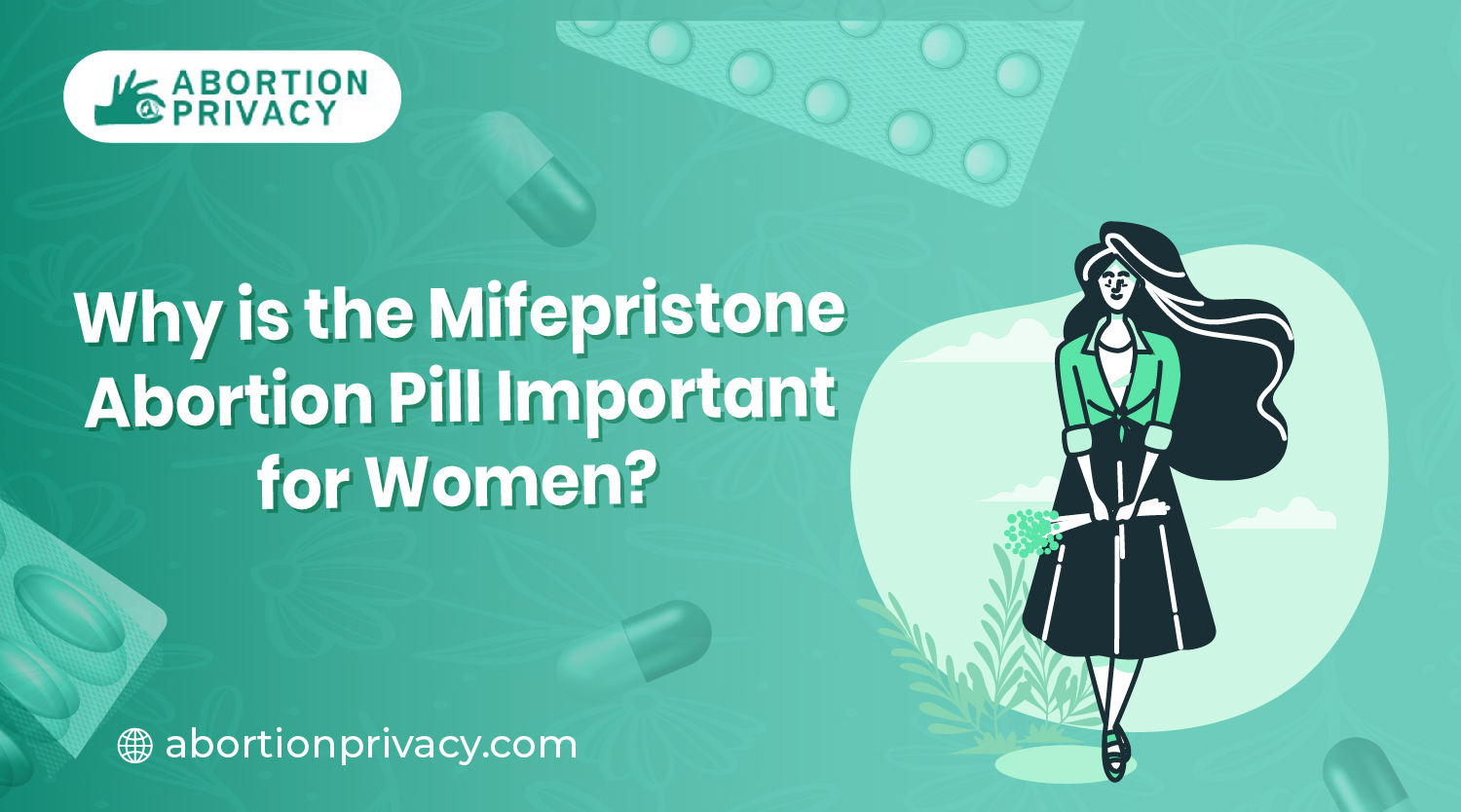Blog

Why is the Mifepristone Abortion Pill Important for Women?
Mifepristone is one of the primary medicines that women use to induce a medical pregnancy termination. The benefit is that you can take the pill at home. You can manage your schedule as per your comfort and take time out to self-initiate the procedure. You may or may not need assistance; this is completely your call. However, the dosage indications are simple and easy to follow for any individual. Thus, you can get the process done without any help as well. It is best to keep necessary supplies ready and keep a backup emergency care contact ready in case of any contingency. Let us know more about the Mifepristone abortion pill in more detail below.
What is Mifepristone, and how does it work to facilitate an abortion?
The synthetic steroid mifepristone functions as an antagonist of the progesterone receptor. Put more simply, it prevents the body from producing progesterone, a hormone that is necessary to sustain a pregnancy. Mifepristone prevents the embryo from implanting or causes an implanted embryo to detach by inhibiting progesterone, which breaks down the uterine lining. This procedure essentially stops the pregnancy's progression. Usually used 24 to 48 hours after mifepristone, it is combined with misoprostol, another medicine.
How does Mifepristone function when combined with the Misoprostol Pill?
Misoprostol completes the abortion process by causing the uterus to contract and expel the pregnancy tissue. You can usually take Mifepristone and Misoprostol together up to 10 to 12 weeks of gestation. Because it provides a non-surgical option for terminating a pregnancy, it is usually preferred by many women to eliminate an unintended pregnancy. The crucial factor is the disablement of the progesterone's function. As the endometrial lining sheds, the fetus cannot sustain and advance to the next stage of pregnancy.
Does Mifepristone's online availability Help Females?
The availability of Mifepristone online gives women a non-invasive, private, and safe way to terminate an undesired pregnancy. Before medicinal abortion became widely accessible, the most common method was the surgery option. With the right medical supervision and follow-up, Mifepristone gives women the freedom to manage their abortion in a more private setting, frequently at home. So, you can now make reproductive health decisions without societal pressure or having to disrupt your confidentiality.
Is Mifepristone a safe and effective method for abortion?
Indeed, Mifepristone is regarded as a very safe and successful method of abortion, especially in the early stages of pregnancy, when taken as prescribed in combination with misoprostol. Its safety profile has been confirmed by several studies and decades of clinical practice globally. Most women have a successful pregnancy termination with pills. Serious complications are uncommon. For pregnancies up to 10 weeks of gestation, Mifepristone and Misoprostol pills have a very high success rate, usually between 95% and 98%. This means the maximum number of pregnancies are successfully ended without the need for additional care.
How many weeks into the pregnancy can you use Mifepristone?
Mifepristone is most effective when used in the early stages of pregnancy, usually up to 10 to 12 weeks of gestation. The highest success rate is seen if you use this abortion pill within 70 days (10 weeks) or even 77 days (11 weeks) following the last menstrual cycle. You can also use this pill if the pregnancy is within the first 12 weeks. However, avoid medical abortion beyond this period, or there could be a high risk of excessive bleeding or an incomplete abortion. If the pregnancy is beyond 12 weeks, you can get a surgical abortion. Pregnancy that progresses further than the mentioned time cannot find much success with Mifepristone due to the fetus's development.
What are the expected outcomes and side effects of Mifepristone and other abortion pills?
Women who take Mifepristone often have side effects that resemble a miscarriage or a heavy period. Abdominal cramps and vaginal bleeding, which can be heavier than a typical menstrual cycle and may contain blood clots, are the most frequent adverse effects. As the body eliminates the pregnancy tissue, these symptoms are normal. Other potential adverse effects include headache, nausea, vomiting, diarrhea, dizziness, fever, or chills. However, they are usually less frequent or severe. Each woman may experience these side effects differently in terms of their severity and length. Importantly, most of these adverse effects may be controlled with rest and over-the-counter pain medicines.
What are the contraindications of Mifepristone and abortion pills?
Ectopic pregnancies (pregnancies outside the uterus) are among the conditions that preclude the use of the Mifepristone abortion pill. Because Mifepristone may alter adrenal function, other contraindications include chronic adrenal insufficiency or known or suspected adrenal gland failure. Because of possible interactions, long-term systemic corticosteroid therapy is also on the list. Because of the possibility of severe bleeding, women with hemorrhagic illnesses or those receiving anticoagulant therapy are usually not suitable. Others are undetected adnexal mass and long-term conditions (such as severe uncontrolled asthma, serious cardiovascular illness, or severe renal/hepatic impairment).
To Conclude:
For medical abortion, the Mifepristone pill is the first step to start the procedure. It best works when you add Misoprostol pills as well to experience a complete pregnancy termination. We hope the above-given details helped you understand Mifepristone better. You can also buy Mifepristone online for a cost-effective price.